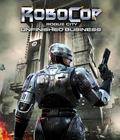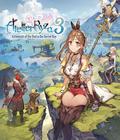A mouthful of a title, Atelier Ryza 3: Alchemist of the End & the Secret Key brings players back into the adorable boots of Ryza Stout, a talented alchemist. Her hometown of Kurken Island is rocked by the sudden appearance of a group of islands that make it difficult to reach the town. It also seems to be playing havoc with the special alchemic system that keeps the island from sinking into the sea. Naturally, Ryza calls her adventurer friends and goes to explore the island. What she finds is a mysterious message about "The Code of the Universe" and a sudden vision that allows her to craft magical keys. With only these bits of knowledge, Ryza sets out to learn what the Code of the Universe means and how she can save her hometown from disaster.
Ryza 3's plot feels a bit like a victory lap. While it does go into the overarching metaplot, a good chunk of your time is spent with the characters from the first game hanging out and dealing with the fact they are now adults while fondly looking back on their childhood adventures. It's a kind of neat theme for an RPG, and it takes advantage of the fact that Atelier characters actually age, but it occasionally feels a touch too self-congratulatory. At its core, it is a nice wrap-up for the cast of Ryza and allows for satisfying moments that play off stories that unfolded across all three games. (It's shockingly satisfying to see Lent finally defeat his abusive alcoholic father in combat!)
The gameplay loop in Ryza 3 is the familiar standard of the series. You veer between going out into the world to collect ingredients and fight enemies and returning home to craft powerful items. If you've played an Atelier game before, you know what to expect, and if you haven't, Ryza 3 isn't a great place to start considering the plot and the fact that it seems to expect basic mechanical knowledge. I can't say it is entirely inaccessible to newcomers, but it's probably best to go through Ryza 1 first.
Combat in Atelier Ryza 3 follows the same action-oriented flow as the last two games but perhaps even more so. Gone is any sense of waiting. You can attack constantly and without limitations, with attacks building up AP that you can use on skills, which you can chain together to do more damage. Doing these combos builds up your CC gauge, which you can use to unleash powerful items in battle. You can perform long combos that involve moving from regular attacks to skills, and you can swap to a different character to launch a swarm of massive bombs.
It's a fun combat system, but it feels shockingly frantic for an Atelier title and sometimes devolves into raw button-mashing. You basically want to use everything every time, and eventually attacks can become repetitive. The "Action Order" system returns from previous games, where allies may sometimes ask you to perform a certain action to trigger a bonus attack, but since you're spamming all of your actions anyway, that is going to happen with or without you. The only time you need to pause in your assaults is when an enemy is about to attack, since timing your Guard button properly massively reduces damage. I enjoyed it, but I could see it being too frantic for a series that is traditionally about relaxing.
Synthesis in Atelier Ryza 3 is fun. It uses the same basic mechanics as Ryza 2 but with some new twists. Like the previous game, you'll put items into various loops, and if they match the element of that loop, it'll improve stats and open up new loops. The more loops you fill, the better the final product, but since you have a limited number of items you're allowed to put in, you'll need to think carefully about what to use.
What they added are two particularly cool features. Super Traits are features of items that give incredibly powerful skills or attributes, but only one can be added to an item, and they can't be inherited forward, making it necessary to use one of your valuable item slots on an inferior item that has the super trait you want. It's not a huge difference, but it's an extra thing to juggle, and it made me rethink my item selection multiple times.
Link Morph is probably the coolest new feature. Once you unlock it, you can "morph" your Core Loops (the first loops you have to fill out to craft the item at all) by using items, which change their attributes and can sometimes turn them into new items. By using Aqua Ore on a Bomb, you can change its Fire damage to Ice, or make it do fire and ice damage in exchange for losing one of its bonus bad status effects. You can add the ability to revive allies to a healing item, add an extra status bonus, or all sorts of other things.
This is probably one of my favorite new features in Atelier synthesis. It sounds small, but it allows you to really customize items. So many items in Atelier have great effects, but if there's one that is kind of boring or detrimental, the ability to remove and replace it makes it way more fun. On top of that, it means you can't ignore certain loops, which makes figuring out the perfect synthesis more of a challenge in a good way.
One of the features I'm less hot on is the titular Keys. Early in the story, Ryza learns how to create special keys from enemies or landmarks. These keys are semi-randomly generated and can have attributes that boost stats, offer a temporary buff in battle, improve gathering resources or give bonuses to synthesis. Some keys can even do multiple things at once. Each key has limited uses, and using most of its features will drain those uses. In-battle buffs have a time limit, so you have to think about where to use them, while Synthesis usages offer additional bonuses if they match the quality or element of the item involved.
I don't think that the keys are a fun addition to the game. When they begin, they are entirely too random, and once you get options to mitigate that randomness somewhat, they add an extra layer of randomness to the synthesis process, which isn't particularly fun. Getting the right key can make all the difference in the quality of an item, but finding the right key is annoying. More often than not, I would settle for slightly worse items over anything else. Since you need to craft the "capture" keys to get anything good, it felt like a pointless way to spend the time.
To add to that, the fact that keys are valuable for synthesis meant that if you had a key that had a remotely good synthesis trait, you wouldn't use it in combat. Indeed, there are whole mechanics based around using keys to buff yourself that I basically never touched outside of tutorials because making a better item was always more valuable than the combat boosts. This is an Atelier game after all, and even when enemies hit hard, you're almost always going to do better by crafting a new set of armor or a particularly deadly bomb rather than with a temporary boost.
The result is that the key (pun intended) feature of the game ends up feeling perfunctory. I never focused on it outside of making keys at landmarks and from strong enemies/bosses. If I had a key for an item that I was trying to craft, I'd use it, but I wouldn't go hunting for one. Once I got a few upgrades under my belt, it usually wasn't even necessary to do so to fill out most of a craft. It really feels like an underbaked concept.
There are a couple of other new features, like the ability to build satellite Ateliers that you can customize with new rooms to gain bonus statuses, but otherwise, Ryza 3 is a very comfy and familiar game. It's another trip into the Ryza world, and that's pretty much all it needs to be. It feels as if that particular cast and setting has said most of the things that it needs to say, and I admit I'm looking forward to whatever the new Atelier brings us.
Visually, Ryza 3 looks pretty much on par with the rest of the series. The character models and animations are great, but the environments vary notably in quality. The Switch version has the option for a Performance mode, which makes the game run quite smoothly even in handheld form, and I'd probably recommend that overall. Again, like the rest of the series the voice acting is Japanese-only, but it sounds quite good, and the music is top-notch and contains a lot of great songs. Atelier somehow always manages to include a few bangers on its soundtrack every time.
Atelier Ryza 3: Alchemist of the End & the Secret Key is a comfy and cute game. It's one more trip with Ryza and her friends, with mostly familiar mechanics and locations, but there are enough new twists to make it a worthwhile revisit. The only real complaint I can give is that the Key mechanic is poorly implemented, but even that is a case of missed potential rather than anything that's actively bad. If you like Atelier, it's easy to like Atelier Ryza 3.
Score: 8.0/10
More articles about Atelier Ryza 3: Alchemist of the End & the Secret Key











 Atelier Ryza 3: Alchemist of the End & the Secret Key is an open-world RPG where Ryza and her friends set sail to investigate the strange islands that have appeared worldwide.
Atelier Ryza 3: Alchemist of the End & the Secret Key is an open-world RPG where Ryza and her friends set sail to investigate the strange islands that have appeared worldwide.




























